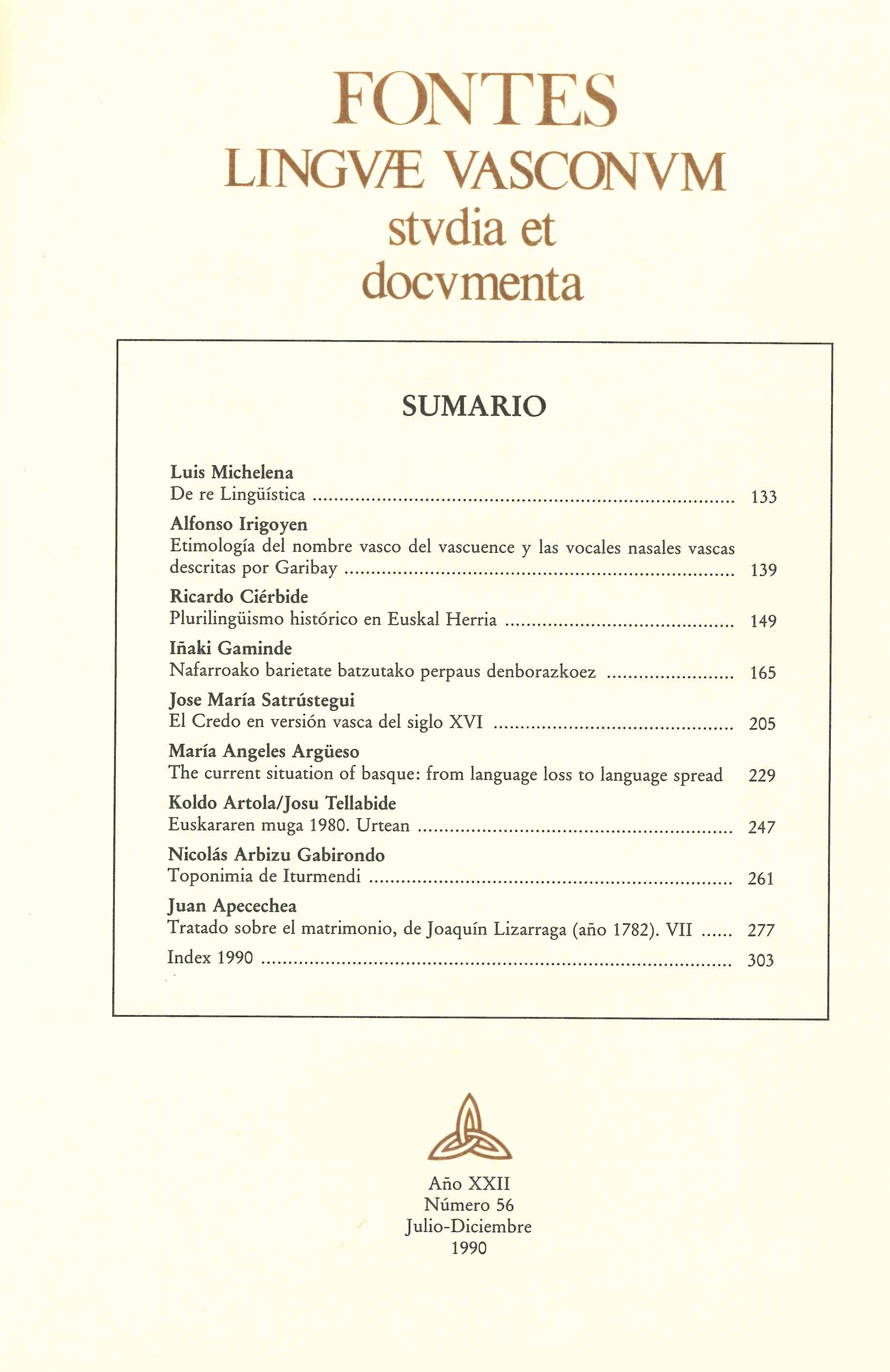Etimología del nombre vasco del vascuence y las vocales nasales vascas descritas por Garibay
Abstract
The suffix -(k)ara / -(k)era applied to euskeraleuskara, the basque word for basque language, which in the case of erdara/erdera «non basque language» appears without the -k-, comes, according to the author of this work, from the feminine romanic forms aira > -era, both an evolution of the latin suffix -arius, -a, -um.
Considering on the one hand the XVI century form enusquera, by Esteban de Garibay from Mondragon, which would habe been pronounced e-uskera, as a nasal vowel, and on the other hand sorne parallel forms like «jazkera», « Way of dressing» from jantzi «to dress» and euskera, «way of holding» from eutsi, to hold, a form that would never have had nasality the author proposes ,:•enau(t)si, «to say» as a basis for the forms euskeraleuskara. this participle would have given verb flexions such as diñostl diost, with a Biscayan variant diñaust «he says it to me' meaning originally «to say».
##about.statistics##
Copyright (c) 1990 Alfonso Irigoyen

This work is licensed under a Creative Commons Attribution-NonCommercial 4.0 International License.







